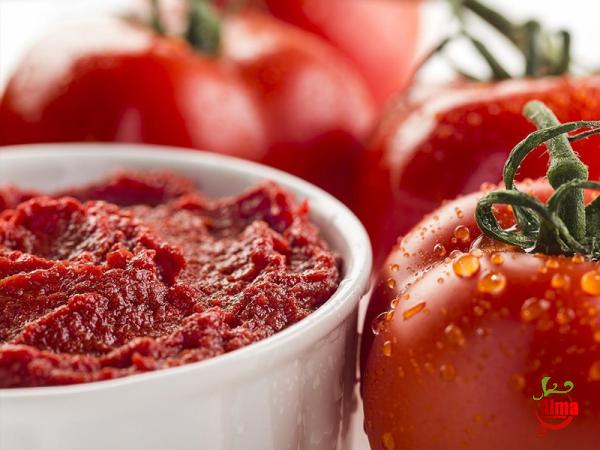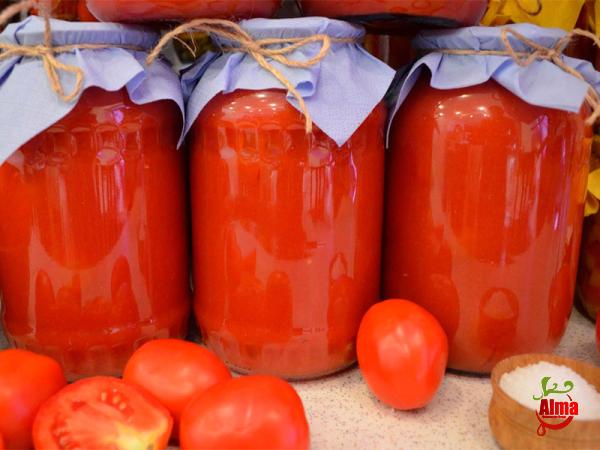An Overview of Canned Tomato Varieties for Every Culinary Need Introduction: Canned tomatoes are a staple ingredient in countless kitchens worldwide, providing convenience, versatility, and year-round availability. They are valuable additions to a diverse range of recipes, including soups, stews, sauces, and more. However, with a myriad of options available in the market, understanding the different varieties of canned tomatoes is crucial to choosing the right product for specific culinary needs. This article will delve into the various types of canned tomatoes, their characteristics, and the best ways to use them. 1. Whole Tomatoes: Whole canned tomatoes are often packed in a thick tomato juice or puree, providing an intense tomato flavor and vibrant color. These tomatoes are harvested at peak ripeness and subsequently canned to preserve their freshness. Whole tomatoes are ideal for recipes where a chunky or rustic texture is desired, such as casseroles, pasta dishes, and slow-cooked meals. They can be easily chopped, crushed, or pureed based on the desired outcome. 2. Crushed Tomatoes: Crushed tomatoes are made by mechanically crushing peeled tomatoes into small pieces, creating a slightly smoother texture compared to whole tomatoes. This variety is suitable for recipes that require a smooth and consistent tomato base, such as marinara sauces, pizza sauces, and tomato soups. Crushed tomatoes can be used as is or further cooked down to intensify the flavors. 3. Diced Tomatoes: Diced tomatoes are typically made by cutting whole tomatoes into small cubes before canning. This variety offers a balance between texture and convenience, and they retain a distinct shape and texture during cooking. Diced tomatoes are versatile and can be used in a wide range of dishes, such as salsas, chili, curries, and Mexican-inspired cuisine. Their distinct shape adds visual appeal to dishes while providing a burst of flavor. 4. Tomato Puree: Tomato puree is made by cooking tomatoes down to a smooth consistency and then straining out the seeds and skin. The resulting product is a thick and rich paste-like texture. Tomato puree is particularly popular in Italian cuisine, where it serves as the base for many sauces, including bolognese and arrabbiata. It can also be used to thicken soups, enhance gravies, or as a flavor enhancer in various dishes.

tomato paste
 5. Tomato Sauce: Tomato sauce is a versatile and widely-used variety of canned tomatoes that typically combines tomato puree with additional ingredients such as herbs, spices, and seasonings. It is often ready-to-use, requiring little to no additional seasoning. Tomato sauce is a key component in dishes like spaghetti and meatballs, lasagna, and enchiladas. Its versatility makes it a go-to option for quick and easy meal preparation. 6. Tomato Paste: Tomato paste is a thick and concentrated tomato product made by cooking tomatoes for an extended period, reducing their moisture content. It has an intense flavor and adds depth and richness to sauces, stews, and other recipes. Tomato paste is most commonly sold in small cans or tubes and is often used in small amounts to provide a concentrated burst of tomato flavor. 7. Fire-Roasted Tomatoes: Fire-roasted tomatoes are a distinctive variety that undergoes a roasting process over an open flame before being canned. The charring and smoky flavor imparted during this process add depth and complexity to dishes. Fire-roasted tomatoes are excellent additions to salsas, chili, and other recipes where a distinct smoky flavor is desired. 8. Organic and Specialty Varieties: In recent years, the demand for organic and specialty canned tomatoes has increased. Organic canned tomatoes are produced without the use of synthetic chemicals or pesticides, appealing to health-conscious consumers looking for more natural options. Specialty canned tomatoes can include unique varieties, such as San Marzano tomatoes from Italy, known for their sweet and rich flavor, or heirloom tomatoes, which come in various colors, sizes, and shapes. Conclusion: Understanding the different varieties of canned tomatoes is essential for choosing the right type to enhance the flavors of various dishes. Whether you prefer the rustic texture of whole tomatoes, the smooth consistency of puree, or the convenience of ready-to-use tomato sauce, each variety holds a unique place in culinary creations. Experimenting with different types of canned tomatoes can unlock a world of flavors, ensuring that every meal is perfected with the ideal tomato base for your desired outcome.1. The Business of Canned Tomatoes: Market Overview The global canned tomatoes market has witnessed substantial growth in recent years. Increasing consumer demand for convenience foods, rising disposable incomes, and the year-round availability of canned tomatoes have all contributed to the market’s expansion. Additionally, the versatility of canned tomatoes in various cuisines has further fueled their popularity. The market is dominated by key players such as Del Monte Foods Inc., Conagra Brands Inc., The Kraft Heinz Company, and Red Gold Inc. These companies offer a wide range of canned tomato products and have strong distribution networks, enabling them to cater to the diverse needs of consumers worldwide.
5. Tomato Sauce: Tomato sauce is a versatile and widely-used variety of canned tomatoes that typically combines tomato puree with additional ingredients such as herbs, spices, and seasonings. It is often ready-to-use, requiring little to no additional seasoning. Tomato sauce is a key component in dishes like spaghetti and meatballs, lasagna, and enchiladas. Its versatility makes it a go-to option for quick and easy meal preparation. 6. Tomato Paste: Tomato paste is a thick and concentrated tomato product made by cooking tomatoes for an extended period, reducing their moisture content. It has an intense flavor and adds depth and richness to sauces, stews, and other recipes. Tomato paste is most commonly sold in small cans or tubes and is often used in small amounts to provide a concentrated burst of tomato flavor. 7. Fire-Roasted Tomatoes: Fire-roasted tomatoes are a distinctive variety that undergoes a roasting process over an open flame before being canned. The charring and smoky flavor imparted during this process add depth and complexity to dishes. Fire-roasted tomatoes are excellent additions to salsas, chili, and other recipes where a distinct smoky flavor is desired. 8. Organic and Specialty Varieties: In recent years, the demand for organic and specialty canned tomatoes has increased. Organic canned tomatoes are produced without the use of synthetic chemicals or pesticides, appealing to health-conscious consumers looking for more natural options. Specialty canned tomatoes can include unique varieties, such as San Marzano tomatoes from Italy, known for their sweet and rich flavor, or heirloom tomatoes, which come in various colors, sizes, and shapes. Conclusion: Understanding the different varieties of canned tomatoes is essential for choosing the right type to enhance the flavors of various dishes. Whether you prefer the rustic texture of whole tomatoes, the smooth consistency of puree, or the convenience of ready-to-use tomato sauce, each variety holds a unique place in culinary creations. Experimenting with different types of canned tomatoes can unlock a world of flavors, ensuring that every meal is perfected with the ideal tomato base for your desired outcome.1. The Business of Canned Tomatoes: Market Overview The global canned tomatoes market has witnessed substantial growth in recent years. Increasing consumer demand for convenience foods, rising disposable incomes, and the year-round availability of canned tomatoes have all contributed to the market’s expansion. Additionally, the versatility of canned tomatoes in various cuisines has further fueled their popularity. The market is dominated by key players such as Del Monte Foods Inc., Conagra Brands Inc., The Kraft Heinz Company, and Red Gold Inc. These companies offer a wide range of canned tomato products and have strong distribution networks, enabling them to cater to the diverse needs of consumers worldwide.
Specifications of tomato paste
 2. Trends and Innovations in the Canned Tomato Industry Innovation plays a crucial role in the canned tomato industry, with manufacturers constantly striving to meet consumer demands and preferences. One emerging trend is the production of organic and sustainable canned tomatoes. Consumers are increasingly concerned about environmental sustainability and the use of chemical additives in their food. As a result, many manufacturers are now offering organic options, appealing to health-conscious and eco-conscious consumers. Another trend is the introduction of specialty canned tomato products. These include unique varieties, such as San Marzano tomatoes, which are known for their superior taste and are highly sought after by chefs and culinary enthusiasts. Specialty canned tomatoes cater to niche market segments, providing consumers with high-quality and distinctive options. 3. Quality Assurance and Safety in Canning Operations Ensuring the quality and safety of canned tomatoes is of utmost importance for manufacturers. Canning operations must adhere to strict food safety regulations to prevent contamination and maintain product integrity. Thorough quality control measures, including regular product testing and inspections, are implemented at every stage of the canning process. Manufacturers also use advanced packaging technology to preserve the quality and taste of canned tomatoes. Cans are designed to provide maximum protection against external factors such as light, air, and moisture, which can degrade the product over time. This ensures that consumers receive canned tomatoes that are safe, flavorful, and long-lasting. 4. Canned Tomatoes and Sustainability: Reducing Food Waste The use of canned tomatoes can contribute to reducing food waste. Tomatoes that may be visually imperfect for fresh consumption can still be utilized in the canned tomato industry. This helps to minimize food waste at the farm level and ensures that a significant portion of the harvest is used effectively. Additionally, the long shelf life of canned tomatoes reduces the risk of food spoilage, further reducing food waste at the consumer level. Consumers can store canned tomatoes in their pantries for extended periods, making them a reliable and convenient option for meal preparation. 5. Marketing and Promoting Canned Tomatoes: Engaging with Consumers Marketing plays a crucial role in promoting canned tomato products. Manufacturers often focus on educating consumers about the various culinary uses and benefits of canned tomatoes. They showcase recipe ideas, creative meal suggestions, and highlight the convenience factor associated with using canned tomatoes. Engaging with consumers through social media platforms, cooking demonstrations, and collaborations with chefs and food bloggers is an effective strategy to raise brand awareness and create a loyal customer base. Manufacturers also leverage packaging design to stand out on store shelves, using eye-catching labels and clear product descriptions to inform and entice consumers. 6. Canned Tomatoes in the Food Service Industry: Catering to Professional Kitchens The food service industry is a significant market segment for canned tomatoes. Restaurants, hotels, catering services, and other establishments rely on the convenience and consistency provided by canned tomatoes to meet the demands of their customers. Canned tomatoes in commercial kitchens save time and labor, allowing chefs to focus on other aspects of meal preparation. Whether it’s creating large batches of classic tomato sauce or incorporating canned tomatoes in various recipes, the food service industry depends on the reliability and quality of canned tomato products.
2. Trends and Innovations in the Canned Tomato Industry Innovation plays a crucial role in the canned tomato industry, with manufacturers constantly striving to meet consumer demands and preferences. One emerging trend is the production of organic and sustainable canned tomatoes. Consumers are increasingly concerned about environmental sustainability and the use of chemical additives in their food. As a result, many manufacturers are now offering organic options, appealing to health-conscious and eco-conscious consumers. Another trend is the introduction of specialty canned tomato products. These include unique varieties, such as San Marzano tomatoes, which are known for their superior taste and are highly sought after by chefs and culinary enthusiasts. Specialty canned tomatoes cater to niche market segments, providing consumers with high-quality and distinctive options. 3. Quality Assurance and Safety in Canning Operations Ensuring the quality and safety of canned tomatoes is of utmost importance for manufacturers. Canning operations must adhere to strict food safety regulations to prevent contamination and maintain product integrity. Thorough quality control measures, including regular product testing and inspections, are implemented at every stage of the canning process. Manufacturers also use advanced packaging technology to preserve the quality and taste of canned tomatoes. Cans are designed to provide maximum protection against external factors such as light, air, and moisture, which can degrade the product over time. This ensures that consumers receive canned tomatoes that are safe, flavorful, and long-lasting. 4. Canned Tomatoes and Sustainability: Reducing Food Waste The use of canned tomatoes can contribute to reducing food waste. Tomatoes that may be visually imperfect for fresh consumption can still be utilized in the canned tomato industry. This helps to minimize food waste at the farm level and ensures that a significant portion of the harvest is used effectively. Additionally, the long shelf life of canned tomatoes reduces the risk of food spoilage, further reducing food waste at the consumer level. Consumers can store canned tomatoes in their pantries for extended periods, making them a reliable and convenient option for meal preparation. 5. Marketing and Promoting Canned Tomatoes: Engaging with Consumers Marketing plays a crucial role in promoting canned tomato products. Manufacturers often focus on educating consumers about the various culinary uses and benefits of canned tomatoes. They showcase recipe ideas, creative meal suggestions, and highlight the convenience factor associated with using canned tomatoes. Engaging with consumers through social media platforms, cooking demonstrations, and collaborations with chefs and food bloggers is an effective strategy to raise brand awareness and create a loyal customer base. Manufacturers also leverage packaging design to stand out on store shelves, using eye-catching labels and clear product descriptions to inform and entice consumers. 6. Canned Tomatoes in the Food Service Industry: Catering to Professional Kitchens The food service industry is a significant market segment for canned tomatoes. Restaurants, hotels, catering services, and other establishments rely on the convenience and consistency provided by canned tomatoes to meet the demands of their customers. Canned tomatoes in commercial kitchens save time and labor, allowing chefs to focus on other aspects of meal preparation. Whether it’s creating large batches of classic tomato sauce or incorporating canned tomatoes in various recipes, the food service industry depends on the reliability and quality of canned tomato products.
buy tomato paste
 7. Global Demand for Canned Tomatoes: Regional Preferences The demand for canned tomatoes differs across regions, influenced by cultural preferences, cuisine styles, and availability. In the United States, canned tomatoes are a staple in many households and are often used in Italian-American and Mexican-American cuisine. In Europe, canned tomatoes are an essential ingredient for Mediterranean dishes such as pasta sauces, pizza toppings, and various stews. In Asia, canned tomatoes are gaining popularity as international cuisines are embraced, and consumers seek to explore different flavors and cooking styles. 8. Health Benefits of Canned Tomatoes: A Nutrient-Rich Addition Canned tomatoes offer numerous health benefits, thanks to their high nutrient content. Tomatoes are a rich source of vitamin C, vitamin A, potassium, and other essential nutrients. The canning process does not significantly affect the nutritional value of tomatoes, making canned versions just as nutritious as fresh ones. Moreover, the lycopene content found in tomatoes is known for its antioxidant properties and potential health benefits, including reducing the risk of certain types of cancers and heart disease. Canned tomatoes provide a convenient way to incorporate these health benefits into everyday meals. 9. Opportunities and Challenges in the Canned Tomato Industry The canned tomato industry presents both opportunities and challenges for manufacturers. Growing consumer interest in convenience foods, the expanding global population, and urbanization all contribute to the increasing demand for canned tomatoes. Manufacturers can capitalize on these factors by providing high-quality products that meet consumer expectations for taste, convenience, and nutrition. However, challenges such as fluctuating raw material prices, intense market competition, and the need to constantly innovate to meet evolving consumer preferences can pose hurdles. Manufacturers must stay abreast of market trends, invest in research and development, and maintain strong relationships with suppliers to ensure long-term success. 10. The Future of Canned Tomatoes: Innovation and Diversification The future of the canned tomato industry promises further innovation and diversification. Manufacturers will continue to develop new flavors, unique specialty varieties, and organic options to cater to evolving consumer preferences. The use of sustainable and eco-friendly practices in production and packaging will gain traction as consumers prioritize ethical and environmentally conscious choices. Additionally, technological advancements in processing and packaging will enhance the quality, taste, and shelf life of canned tomatoes. As more consumers embrace the convenience and culinary possibilities offered by canned tomatoes, the industry will continue to thrive and adapt to changing market dynamics. Conclusion: The world of canned tomatoes offers a diverse range of options catering to various culinary needs. Understanding the different types of canned tomatoes, market trends, quality assurance, and the sustainability aspect helps both consumers and businesses make informed choices. With continuous innovation and a focus on meeting consumer preferences, the canned tomato industry is poised for growth and further diversification in the years to come.
7. Global Demand for Canned Tomatoes: Regional Preferences The demand for canned tomatoes differs across regions, influenced by cultural preferences, cuisine styles, and availability. In the United States, canned tomatoes are a staple in many households and are often used in Italian-American and Mexican-American cuisine. In Europe, canned tomatoes are an essential ingredient for Mediterranean dishes such as pasta sauces, pizza toppings, and various stews. In Asia, canned tomatoes are gaining popularity as international cuisines are embraced, and consumers seek to explore different flavors and cooking styles. 8. Health Benefits of Canned Tomatoes: A Nutrient-Rich Addition Canned tomatoes offer numerous health benefits, thanks to their high nutrient content. Tomatoes are a rich source of vitamin C, vitamin A, potassium, and other essential nutrients. The canning process does not significantly affect the nutritional value of tomatoes, making canned versions just as nutritious as fresh ones. Moreover, the lycopene content found in tomatoes is known for its antioxidant properties and potential health benefits, including reducing the risk of certain types of cancers and heart disease. Canned tomatoes provide a convenient way to incorporate these health benefits into everyday meals. 9. Opportunities and Challenges in the Canned Tomato Industry The canned tomato industry presents both opportunities and challenges for manufacturers. Growing consumer interest in convenience foods, the expanding global population, and urbanization all contribute to the increasing demand for canned tomatoes. Manufacturers can capitalize on these factors by providing high-quality products that meet consumer expectations for taste, convenience, and nutrition. However, challenges such as fluctuating raw material prices, intense market competition, and the need to constantly innovate to meet evolving consumer preferences can pose hurdles. Manufacturers must stay abreast of market trends, invest in research and development, and maintain strong relationships with suppliers to ensure long-term success. 10. The Future of Canned Tomatoes: Innovation and Diversification The future of the canned tomato industry promises further innovation and diversification. Manufacturers will continue to develop new flavors, unique specialty varieties, and organic options to cater to evolving consumer preferences. The use of sustainable and eco-friendly practices in production and packaging will gain traction as consumers prioritize ethical and environmentally conscious choices. Additionally, technological advancements in processing and packaging will enhance the quality, taste, and shelf life of canned tomatoes. As more consumers embrace the convenience and culinary possibilities offered by canned tomatoes, the industry will continue to thrive and adapt to changing market dynamics. Conclusion: The world of canned tomatoes offers a diverse range of options catering to various culinary needs. Understanding the different types of canned tomatoes, market trends, quality assurance, and the sustainability aspect helps both consumers and businesses make informed choices. With continuous innovation and a focus on meeting consumer preferences, the canned tomato industry is poised for growth and further diversification in the years to come.









Your comment submitted.